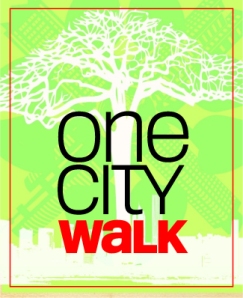How much Buddhism do I have to study before I am really a Buddhist? I couldn’t go to Hardcore Dharma classes this fall because I was training for the marathon. I don’t know Sanskrit or Pali. I know there are lots of lists in Buddhism, and can name some of them, but I think I can name more state capitals than poisons and Nidanas. And I know that there is a lot of debate over whether Buddhism is a religion or a philosophy, and that the defenders of the “religion” side use the existence of an internal hierarchy, hell realms, and other typical religious trappings that appear in certain versions of Buddhism as proof that it is in fact a religion. There are texts upon texts, commentaries, historical and current – enough to keep me reading well into my next lifetime. But I am struck with the question, does any of this matter? How much of this do I need to know to say that I “follow Buddhism”? Some of these texts are enlightening, and comforting. Some of them are enlightening, and terrifying. I am sure as sunrise that I will read many of them, when my brain and spirit are ready.
But here’s one thing I know. There will always be people who know more than me about Buddhism, and there will always be people who know less. Some of the people who know more will always take the position that until I learn more, I am something other than “Buddhist”. Besides the fact that I don’t care to label myself Buddhist or anything else for that matter, I have always found the taking of this kind of stance fascinating.
For example, I just ran the marathon. Very (very) slowly. But there were many people who ran it slower than me, and many who ran it faster. The ones behind me absolutely consider me a marathon runner. But if you look at the message boards on any site devoted to running or marathon training, there are many people who ran the marathon one or two minutes per mile faster than me who do not consider me a marathon runner. They would call me a marathon finisher, or something else, but they feel that only their pace entitles them to be called marathon runners. However, there are thousands of people who ran 4 or 5 minutes per mile faster than me who don’t consider THOSE people marathon runners. But I can tell you this – I did run the marathon, and I trained for it as hard and with as much regularity as the people who ran 1, 2, 3, 4 , or 5 minutes per mile faster than me – and I bet some of the people behind me trained even harder than I did. I ran it as fast as I can, but the bottom line is, I ran it. I ran the marathon. I did it my way, with my training plan, with my unique approach, and I did it.
So those people who secretely or openly have a yardstick for how much studying of Buddhist texts one has to do before one moves beyond, in their opinion, just dabbling, should realize that there is always someone more learned than them who may feel the same way. However, I imagine that in the particular case of Buddhism the more learned and practiced one is, the less one cares to label other people’s journeys.
For me, at this point in my journey, I understand the Buddha’s main suggestion to be as follows:
- Meditate daily, for as long as you are able, to develop present-moment awareness.
- Practice increasing compassion for yourself and others, as much as you are able.
- Question everything.
The radical change I’ve experienced in how I encounter life from merely following these three ideas over the past year with the help of Ethan and the whole IDP community has been remarkable, and I am grateful. Are there miles to go? Yes, but I don’t have a specific goal. I’m allowing, rather than forcing.
And any organization that is devoted to increasing these three ideas in daily life has my support. I think it is worth noting that the historical Buddha, if my limited understanding is correct, came to these conclusions and to his own enlightenment without the aid of milennia of Buddhist texts, hell realms, and religious trappings.

